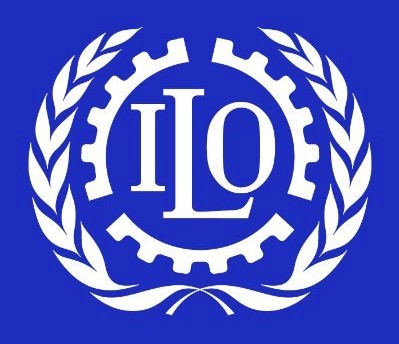ILO Regional Forum Unites Stakeholders to Tackle Informality in Europe and Central Asia
The forum emphasized the need for collaborative, evidence-based approaches to address informality, highlighting social dialogue, digitalization, and sector-specific interventions.

The International Labour Organization (ILO) concluded its Tripartite Regional Knowledge Sharing Forum for Europe and Central Asia on 18-19 December 2024 in Istanbul, Türkiye. The forum emphasized the need for collaborative, evidence-based approaches to address informality, highlighting social dialogue, digitalization, and sector-specific interventions. It also underscored the role of strategic partnerships in achieving an effective transition to formality.
Over 1.5 days, representatives from governments, employers, and workers’ organizations from across the region engaged in discussions to promote the transition from informality to formality. Key themes included:
Social Dialogue as a Cornerstone: Recognized as essential for inclusivity, social dialogue was highlighted for addressing challenges in sectors like platform work, migration, and domestic labour.
Evidence-Based Policy Frameworks: Streamlined administrative processes and comprehensive legislation were stressed as essential for making formalization attractive while discouraging informality.
Digitalization and Innovation: Leveraging digital tools to enhance regulatory transparency and improve governance was acknowledged as transformative for formalization efforts.
Sector-Specific Interventions: Priority sectors, including platform work, agriculture, and tourism, were identified as needing tailored strategies to promote formal economies effectively.
Insights from Stakeholders
Workers’ Representatives emphasized the need for stable social dialogue and multi-ministry collaboration to ensure cohesive policies. Migration was recognized as a significant economic factor requiring human-centered governance approaches. Aligning national policies with EU directives on platform work, minimum wages, and ILO’s R204 Recommendation was also stressed.
Employers’ Representatives advocated for structured social dialogue during policy formation, cautioning against abrupt legislative changes. Simplified administrative processes, SME awareness, and evidence-based policies were proposed as critical to fostering formalization and discouraging informal practices.
Government Representatives highlighted the importance of digitalization, inclusive policymaking, and institutional capacity-building. Incentives such as unemployment insurance, minimum wage adjustments, and clearer definitions of employment terms were proposed as strategies to combat informality comprehensively.
Regional and International Perspectives
Ashraf Bouali, Director of the OECD İstanbul Centre, emphasized the need for affordable social insurance, active labour market policies, and simplified procedures. He underscored the value of collaboration with UN agencies to share lessons learned and best practices across regions.
In his closing remarks, Yasser Hassan, Director of the ILO Office for Türkiye, highlighted the importance of strategic partnerships with organizations like UNDP, OECD, and the European Labour Authority. He urged participants to adopt a balanced approach combining incentives and compliance measures to address informality effectively.
Frédéric Lapeyre, Director of the ILO Priority Action Programme on Transition to Formality, reflected on the progress since ILO Recommendation R204’s adoption a decade ago. He emphasized the upcoming International Labour Conference in June 2025 as a critical milestone for advancing efforts to transition to formality.
Broader Context
The Regional Forum brought together participants from Albania, Armenia, Belgium, Moldova, Greece, Georgia, Kazakhstan, Uzbekistan, Spain, and Türkiye. Strategic partners, including the UNDC Regional Office, UNDP Hub, OECD Istanbul Regional Centre, and European Labour Authority, contributed to the policy debate platform.
Informal employment affects workers’ rights, social protection, and sustainable enterprise development, hindering economic growth and government capacity. Accelerating the transition to formality is vital for addressing decent work deficits, poverty, and inequality.
The ILO’s forum series, Innovative Approaches to Addressing Informality and Promoting Transitions Towards Formality, fosters partnerships, shares good practices, and builds evidence-based knowledge to tackle informality and promote sustainable economic growth.
- READ MORE ON:
- International Labour Organization
- Knowledge Sharing Forum










